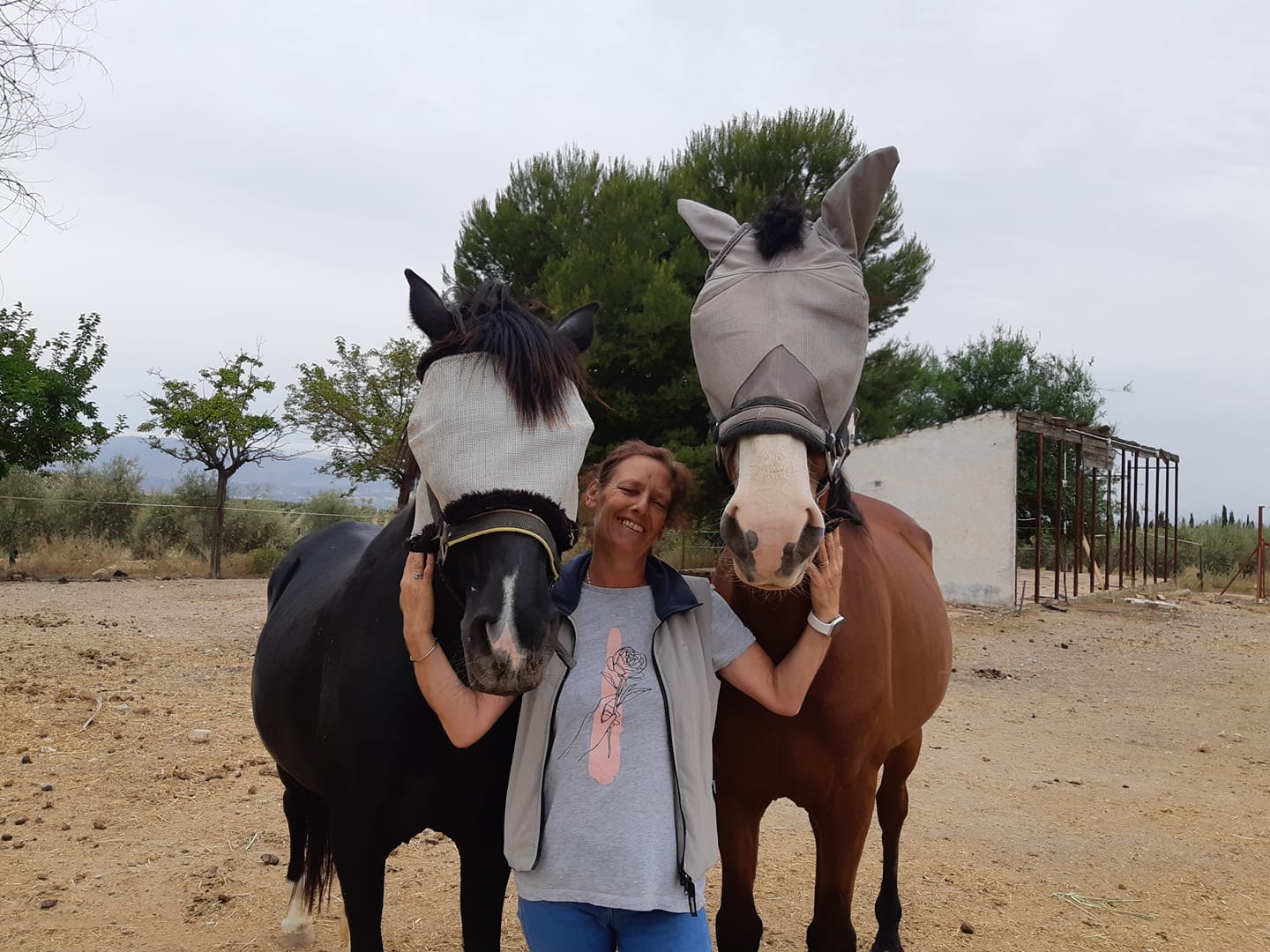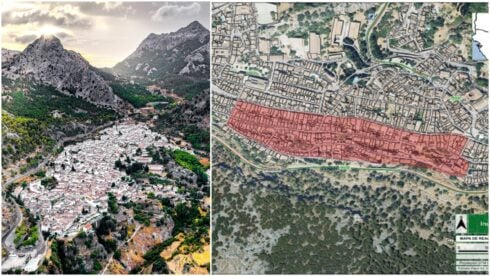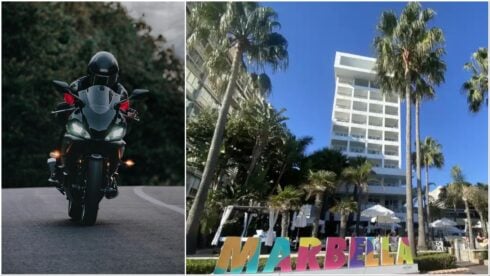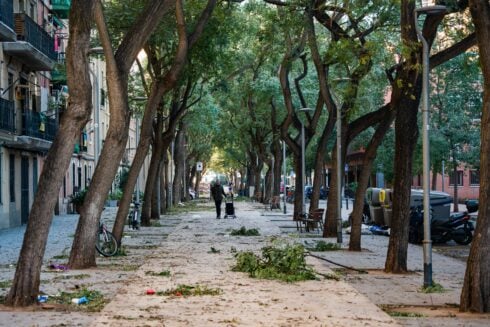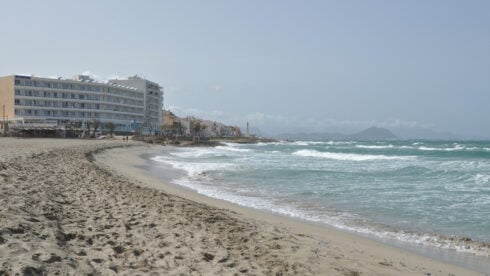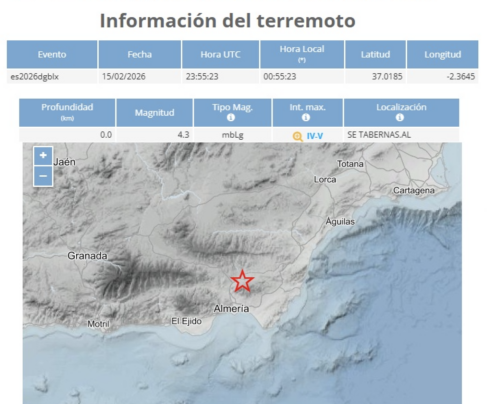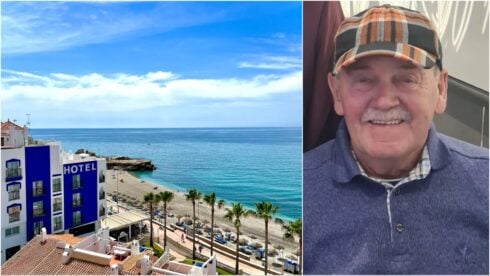By Rachel Gore
DOZENS of horses facing a one-way trip to the slaughterhouse are being thrown a lifeline – thanks to one expat’s last-minute offer to home them in her sanctuary.
More than 60 working horses have been left with an uncertain fate after Malaga banned horse-drawn carriages.
Expat Signe Frossle, who runs a rural rescue centre ‘A Better Life 4 Horses’ in Antequera, has stepped in to offer shelter to as many of these beasts of burden as possible.
The sanctuary owner told the Olive Press that many former license holders are scrambling to offload their horses to nearby towns like Sevilla and Ronda, where carriage tourism remains legal.
She fears these animals will ‘be sent further to other places and do exactly the same work they were doing all day long in the sun with the horse carriage’.
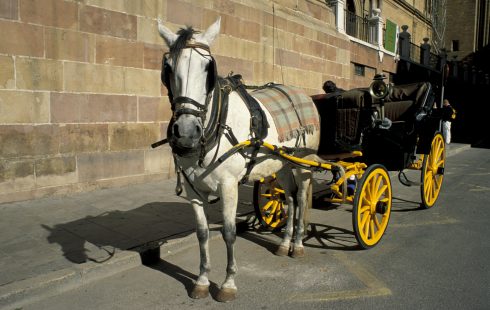
“‘If they do not sell the horses before a certain time, some of them will go to slaughter”, Frossle said.
“The slaughterhouses pay between €500 and €600 per horse, which is just more money for the license holders’.
Being sold to the slaughterhouse is the worst option, according to Frossle, as “it’s like saying, ‘your hard labour was worth nothing’” to the horses.
With time running out, Frossle is racing to save the animals from a grim and uncertain future ‘walking in the sun with tourists or being victims of the slaughterhouse.’
Located just 40 minutes from Malaga, in Antequera, Frossle’s safe-have for horses offers a stark contrast from the city’s chaos.
At her refuge, the horses ‘are treated like superstars’. Spread over 14 hectares, the sanctuary is already home to 34 rescued horses – and Frossle is prepared to take in up to 15 more.
The horses live in pairs, each with their own allocated paddock, and are free to roam the site’s ‘two enormous fields’, and ‘olive grove’. Even in these open spaces, shelters provide protection from the sun or rain.
Upon arrival and throughout their stay, veterinarians visit the site to assess and check on the horses.
The professionals determine whether the animals are ready for adoption or require longer-term care due to injuries, trauma or illnesses.
The ‘traumatised’ or particularly unwell horses remain at the refuge where they receive lifelong care.
Once the horses have recuperated at the refuge, Frossle works to find them new permanent homes.
The Danishwoman insists that the animals are never sold; instead they are passed onto adoptive families who are thoroughly checked and sign a contract which states that if they cannot keep the horse, they must return it to the sanctuary.
Some of these horses are adopted purely for company, as they cannot be ridden. Even for those able to be ridden or used for jumps, riding schools are avoided.
So far, the sanctuary’s horses have found permanent homes in Denmark, Germany, and even Scotland.
Frossle desperately wants to offer these services to the animals affected by Malaga’s horse-drawn tourist carriage ban and wishes that the termination of the carriages involved a requirement to sell the horses in a “safe way”.
She began her horse-rescuing journey after she moved from Denmark to Spain.
She said: ‘I saw a horse that was ill treated and I bought it myself. Then before I knew it , I had bought five horses that way. I thought, this is bigger than me.’
She found herself taking in more and more animals and once the number of rescued horses reached 17, she started the search for volunteers.
She registered the centre in Spain and Denmark so that money could be gained from both countries.
The next step for Frossle and ‘A Better Life 4 Horses’ would be to secure the right ‘destiny’ for the horses from Malaga’s tourist carriages.
To support her, you can donate on ‘A Better Life 4 Horses’ website https://abetterlife4horses.dk/.
For a blind horse, Frossle has put bells in the paddock so ‘she can hear where in the paddock she is depending on the wind’.
Volunteers ‘work daily’ with the animals and for many this is transformative. One rescued horse, too weak to stand on arrival, was initially moved with a tractor – but within days, she was strong enough to walk unassisted.
The animals ‘can go under the roof’ whenever they want; the land at Frossle’s sanctuary is the horses’ space.
Each horse is ‘fed every day with hay, given ad libitum’ along with vitamin supplements. A few also receive specially prepared cooked meals, depending on their needs.
‘Some are happy to just get their hay and vitamins’, she explains, while others require ‘cooked food’ as well.
Click here to read more Andalucia News from The Olive Press.

